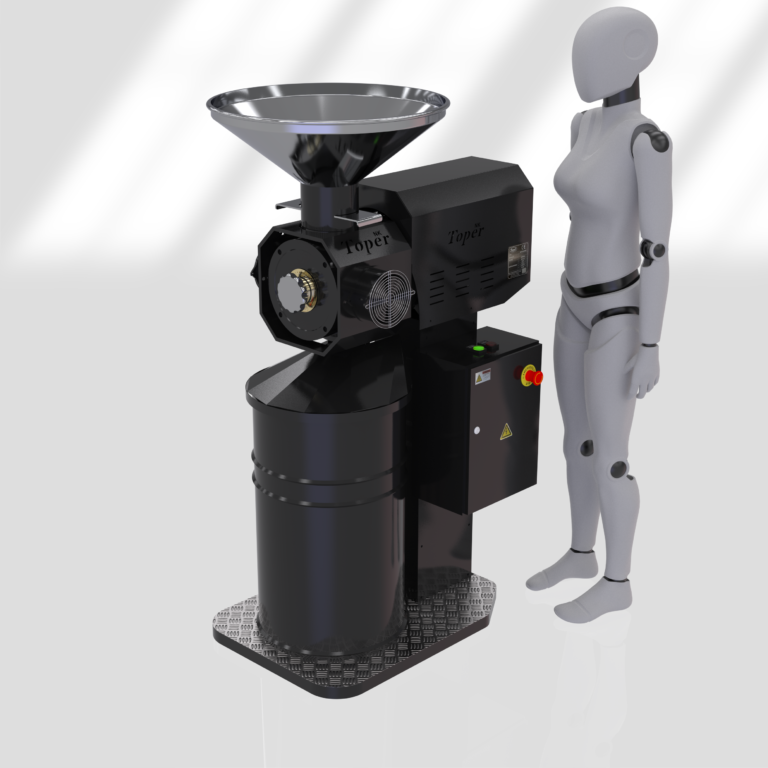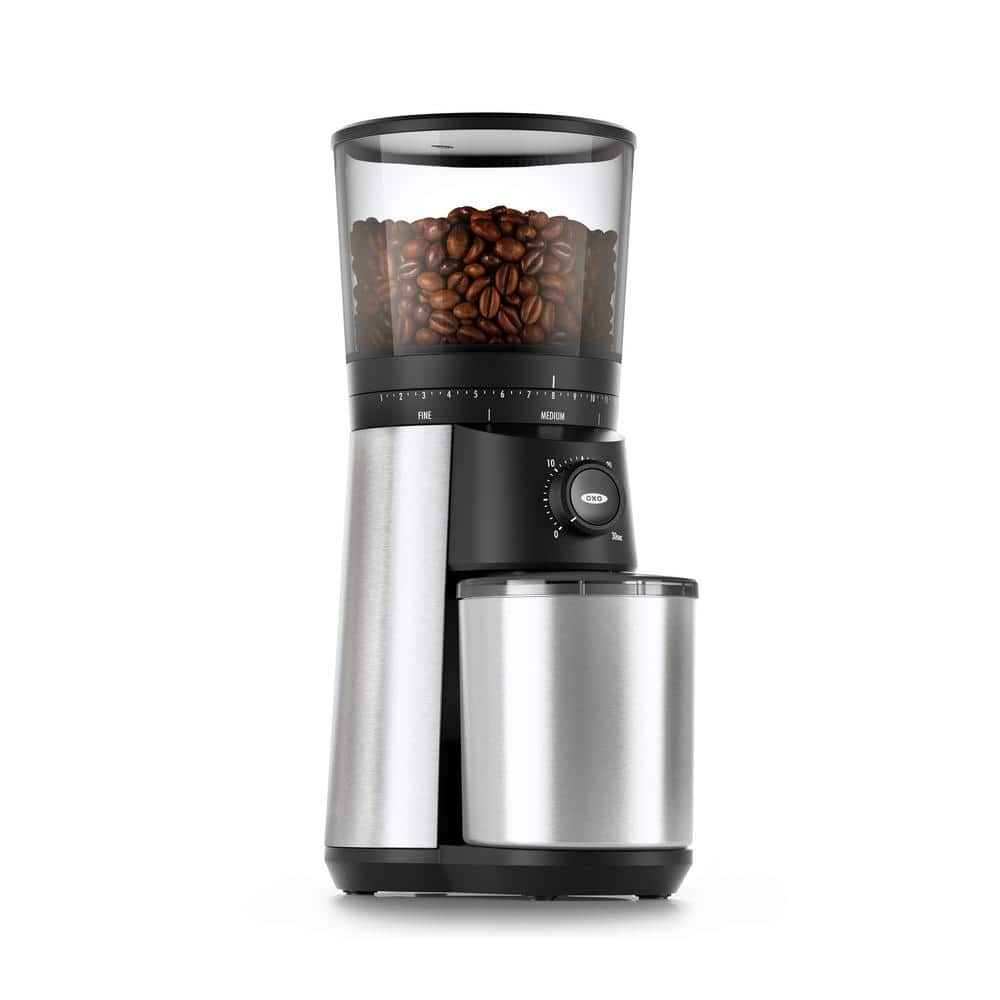Reasons Every Café Should Have an Industrial Coffee Grinder
Reasons Every Café Should Have an Industrial Coffee Grinder
Blog Article
How to Pick the Perfect Industrial Coffee Mill for Your Service
Selecting the excellent commercial coffee grinder for your service is a complex decision that needs mindful consideration of numerous critical aspects. It is important to evaluate your specific grinding requirements, including the volume of coffee processed and the preferred work consistency, as these elements straight impact flavor and client contentment. Additionally, understanding the various kinds of grinders readily available can dramatically affect your functional performance. As you browse these considerations, one have to also evaluate the effects of spending plan and upkeep. What various other factors could make or break your choice?
Assess Your Grinding Needs
When selecting an industrial coffee grinder, one should first analyze their grinding demands to make certain optimal performance and uniformity. This preliminary evaluation involves comprehending the quantity of coffee to be processed daily, in addition to the wanted work dimension for various brewing approaches. A high-capacity grinder may be needed for organizations offering large quantities of coffee, while smaller sized operations might find a more small model adequate.
Additionally, it is vital to think about the sorts of coffee beans being made use of, as different beans might require particular grinding techniques to achieve the very best taste account. Oily beans might necessitate a grinder made to take care of such features without overheating or clumping.
Specialty coffee services typically require exact grind dimensions to enhance removal and taste, making it essential to choose a grinder that can supply consistent outcomes. Reviewing the available room and electric requirements will aid in selecting a mill that fits effortlessly into your operational process.
Understand Grinder Types
Comprehending the numerous types of commercial coffee grinders is critical for making a notified selection that fulfills details operational requirements. There are primarily two categories of grinders: blade grinders and burr grinders.
Blade grinders use rotating blades to slice the coffee beans, leading to an inconsistent grind dimension - Industrial Coffee Grinder. While they may be much more economical, they are often not suitable for business applications where precision is important
On the various other hand, burr grinders supply an extra uniform grind by crushing the beans between two surfaces. They can be additional categorized into flat burr and cone-shaped burr mills. Flat burr mills use a regular work size and are commonly favored for coffee preparation, while conelike burr mills are versatile and can deal with a variety of brew approaches, from coffee to French press.
When selecting a mill, think about the particular needs of your service, including desired work uniformity, manufacturing volume, and the kinds of coffee beverages you intend to provide - Industrial Coffee Grinder. Each mill type has its restrictions and benefits, so comprehending these subtleties enables notified decision-making that aligns with functional goals
Evaluate Work Size Consistency
Accomplishing grind dimension consistency is important for generating top notch coffee, as variations in bit size can considerably impact extraction and taste. When choosing a commercial coffee mill, it is essential to assess exactly how well the device preserves harmony in work size across various batches. Irregular work dimensions can bring about irregular extraction, causing a mug that might taste weak view it or excessively bitter.
To assess work size consistency, think about grinders with functions such as flexible grind settings and top notch burrs. Burr grinders, specifically, succeed in generating consistent particle dimensions contrasted to blade mills. The product and shape of the burrs play a crucial role, with stainless steel and ceramic options offering toughness and accuracy.

Consider Production Capability
In the hectic world of coffee production, taking into consideration production capacity is critical for organizations aiming to fulfill need without giving up top quality. The production ability of a commercial coffee grinder directly influences a company's capacity to meet orders efficiently, manage stock, and reply to fluctuating market fads.
When analyzing manufacturing ability, it is necessary to review the mill's outcome rate, usually gauged in pounds per hour. This dimension ought to line up with your company's forecasted sales volume and growth targets. A coffee shop with a high turnover may call for a mill that can process several hundred pounds daily, while a smaller operation might be sufficient with a reduced capability design.
Furthermore, take into consideration the type of coffee being processed. Various beans and blends may influence grinding speed and performance, demanding a mill efficient in taking care of varied production demands. It's likewise worth factoring in the mill's ability to keep consistent quality under high output problems, as any kind of variations can influence the last item.
Ultimately, selecting a grinder that matches your business's manufacturing capacity will guarantee you stay affordable and receptive to client check out this site assumptions.

Budget and Maintenance Aspects
When examining the best commercial coffee grinder, budget plan and upkeep elements play a considerable function in the general decision-making process. An initial investment in a premium mill can produce long-lasting advantages, but it's essential to develop a clear budget plan that lines up with your service's operational requirements. Take into consideration both the purchase cost and prospective functional expenses, such as power usage and replacement components.
Maintenance is an additional crucial facet that can influence your budget. Industrial coffee grinders require regular upkeep to guarantee optimal performance and longevity. Assess the maker's referrals for upkeep, consisting of cleaning timetables and components substitute, as these will certainly impact long-lasting operational expenses. Additionally, take into consideration the schedule of solution and assistance, as dependable help can mitigate downtime and fixing expenses.

Buying a mill that is durable yet very easy to keep can save money gradually. While lower-priced options may be tempting, they might sustain higher upkeep prices and reduced efficiency. Eventually, stabilizing preliminary costs with long-lasting maintenance and operational efficiency will assist you to the most effective choice for your organization's coffee grinding demands.
Verdict
Picking the suitable commercial coffee grinder necessitates a detailed examination of grinding needs, mill kinds, grind size consistency, production capacity, and monetary factors to consider. By prioritizing these variables, businesses can ensure the purchase of a trustworthy, effective mill that satisfies details functional demands. An appropriate mill not only improves the high quality of the coffee created but additionally adds to the general success and success of the enterprise. Lasting efficiency and maintenance ease must continue to be main to the decision-making procedure.
Specialized coffee organizations frequently require exact work dimensions to enhance removal and flavor, making it vital to select a grinder that can provide consistent outcomes. Flat burr mills provide a regular work size and are commonly preferred for coffee preparation, while cone-shaped burr grinders are flexible and can deal with a variety of mixture approaches, from coffee to French press.
When selecting an industrial coffee mill, it is critical to assess exactly how well the device keeps harmony in grind dimension throughout various sets. Burr mills, in certain, excel in index producing uniform fragment dimensions compared to blade grinders.Selecting the suitable commercial coffee grinder requires a comprehensive analysis of grinding requirements, grinder kinds, grind size consistency, manufacturing capacity, and monetary considerations.
Report this page